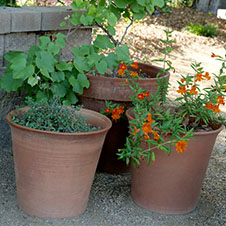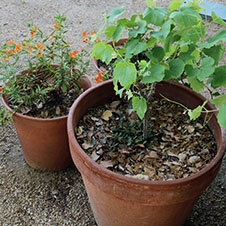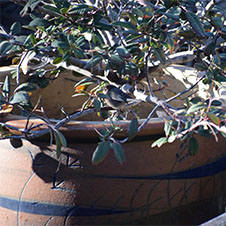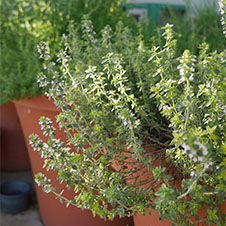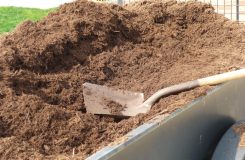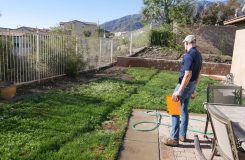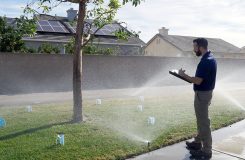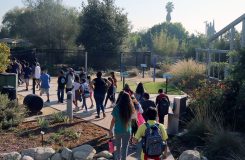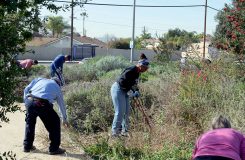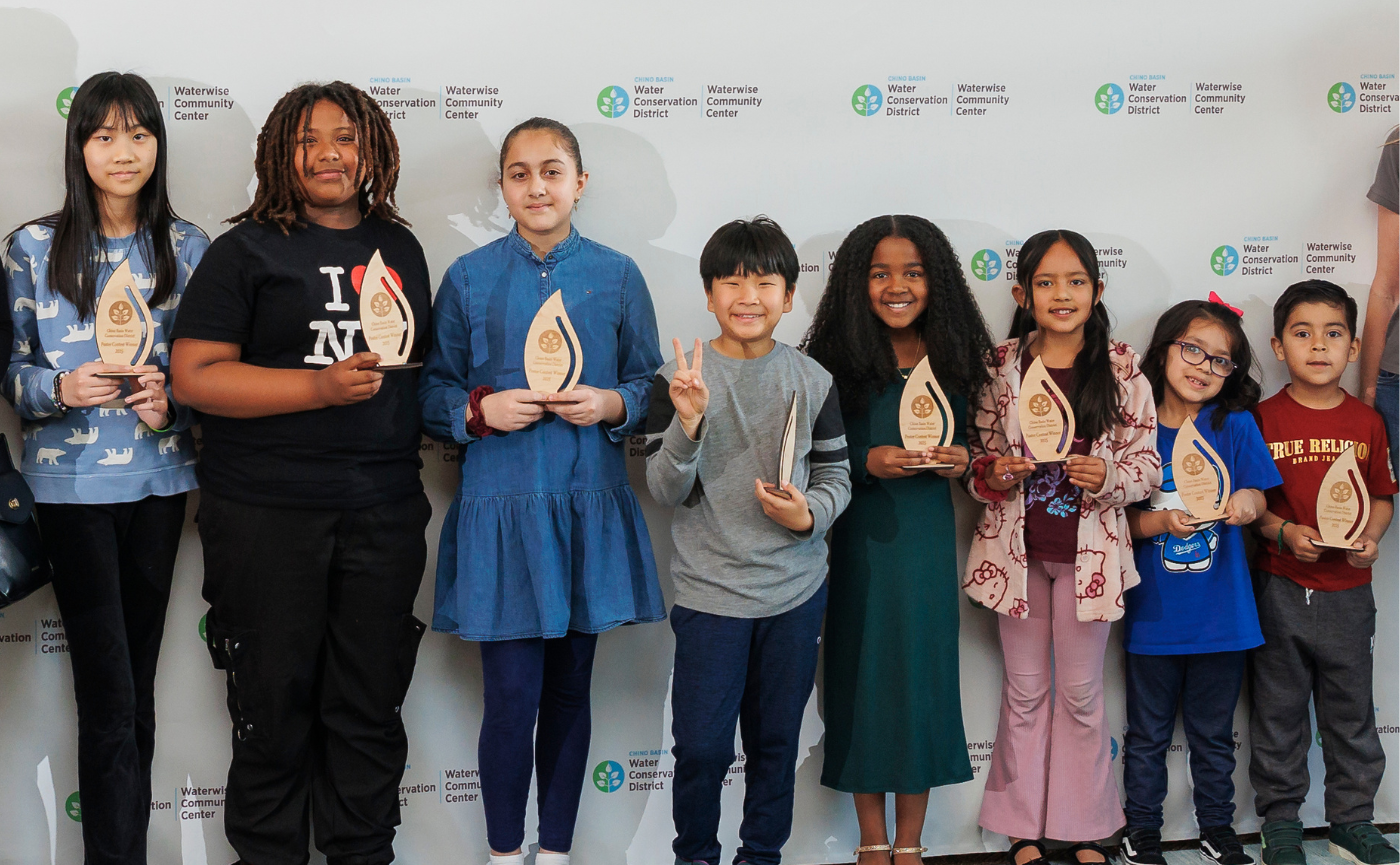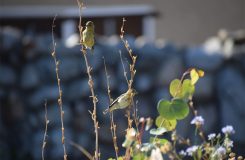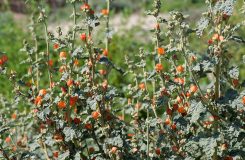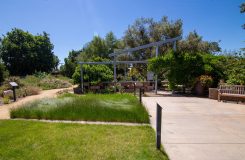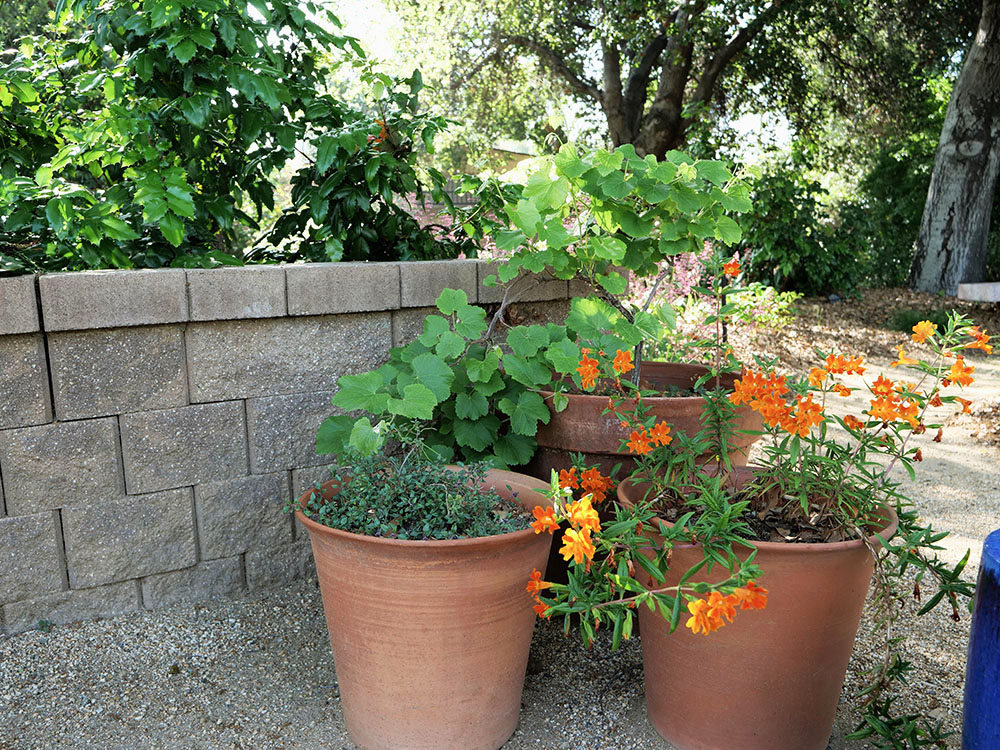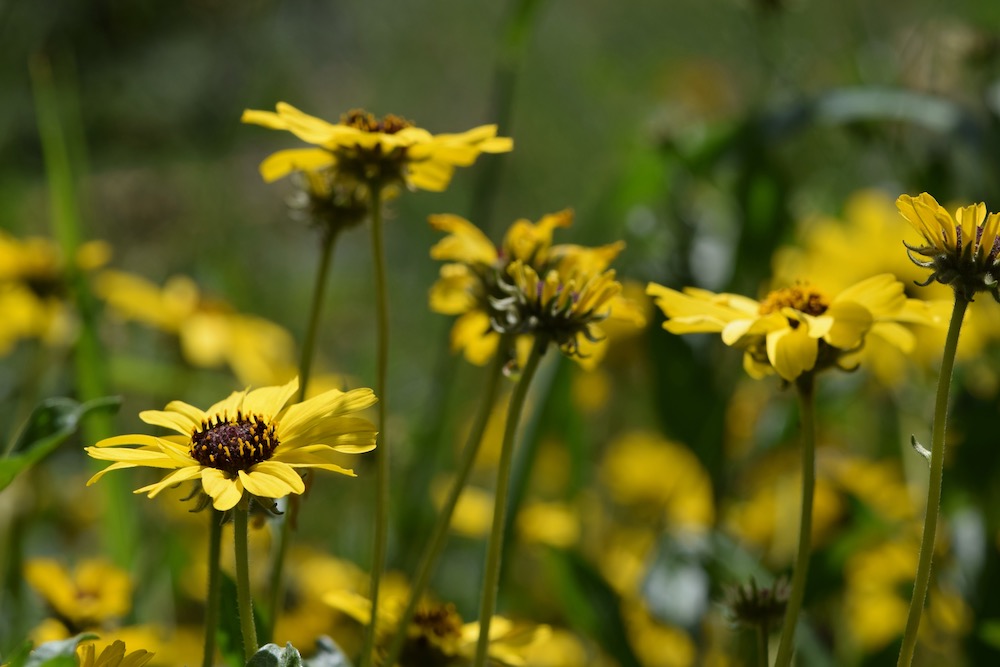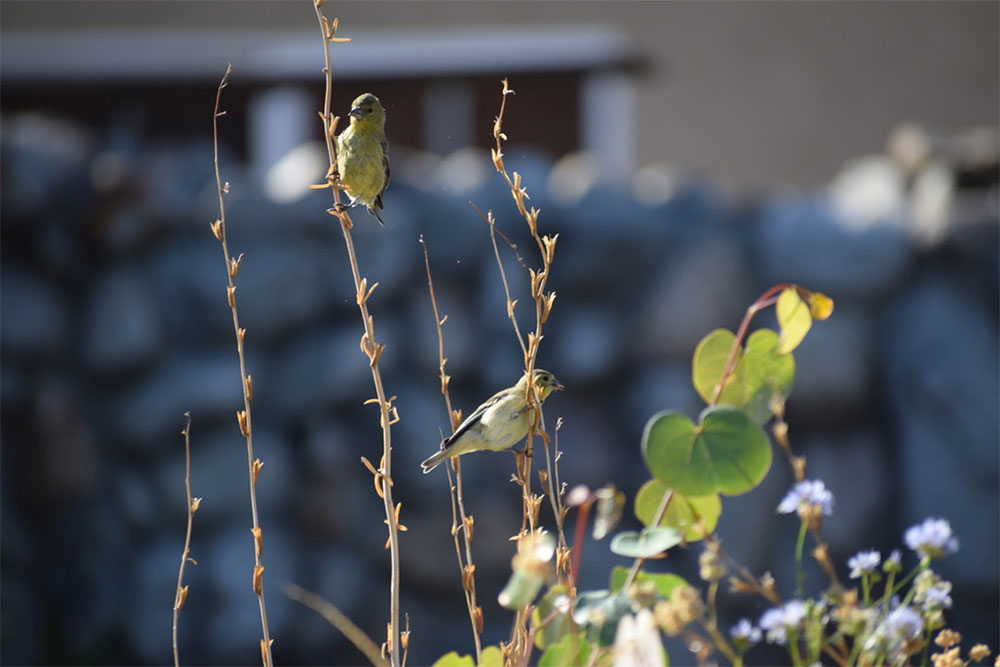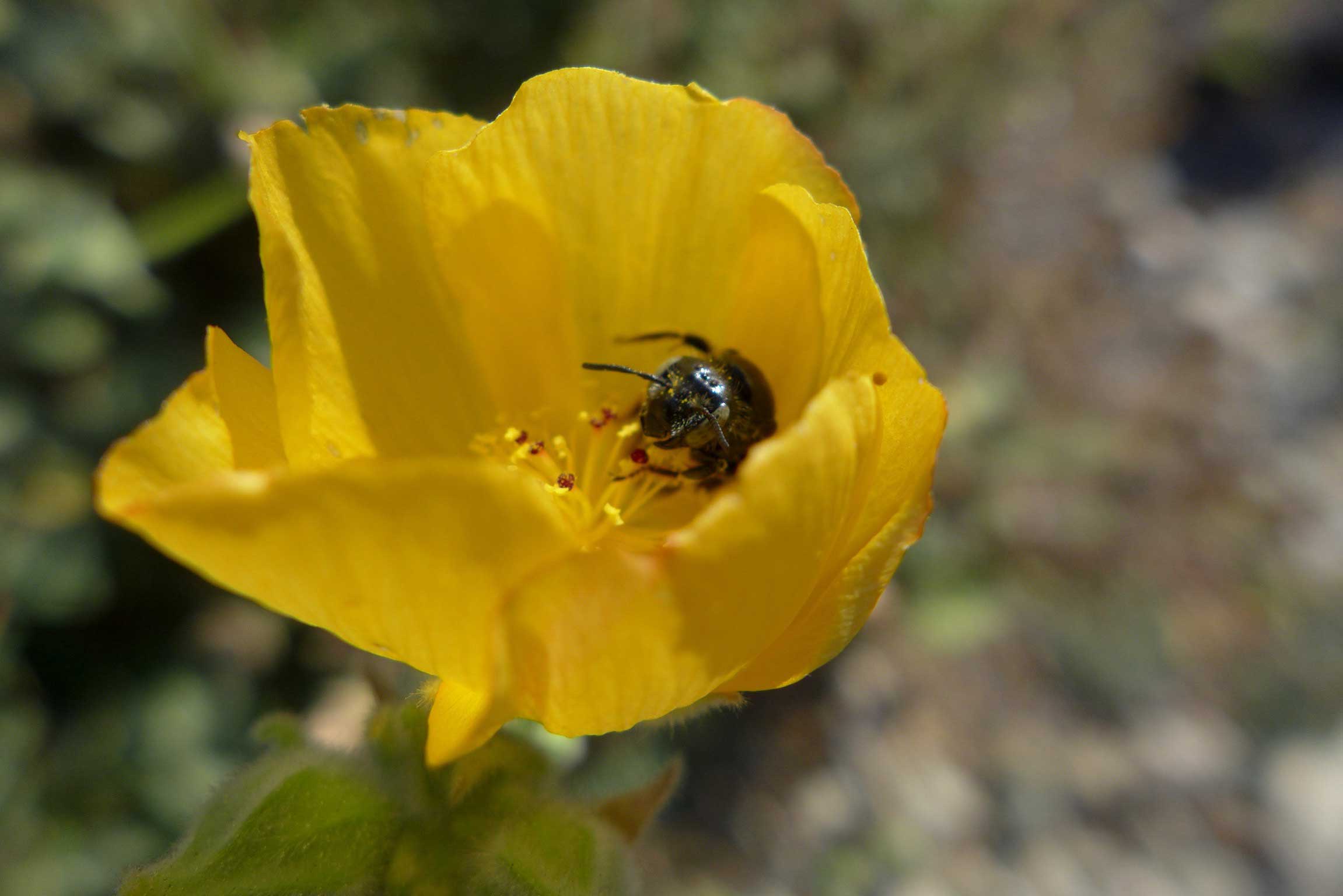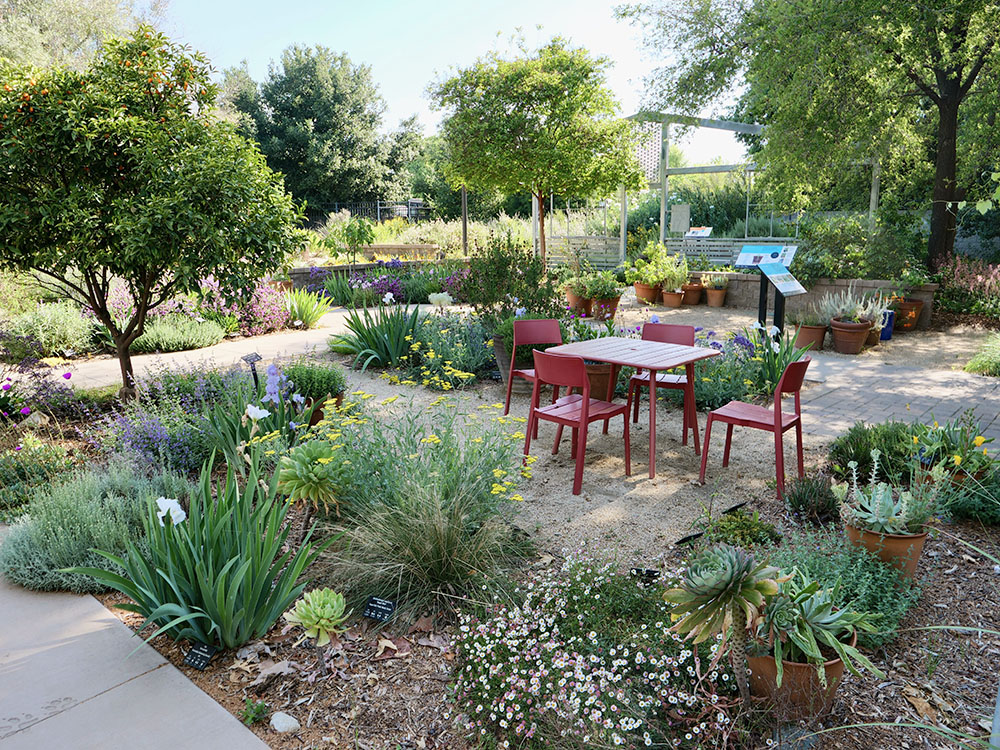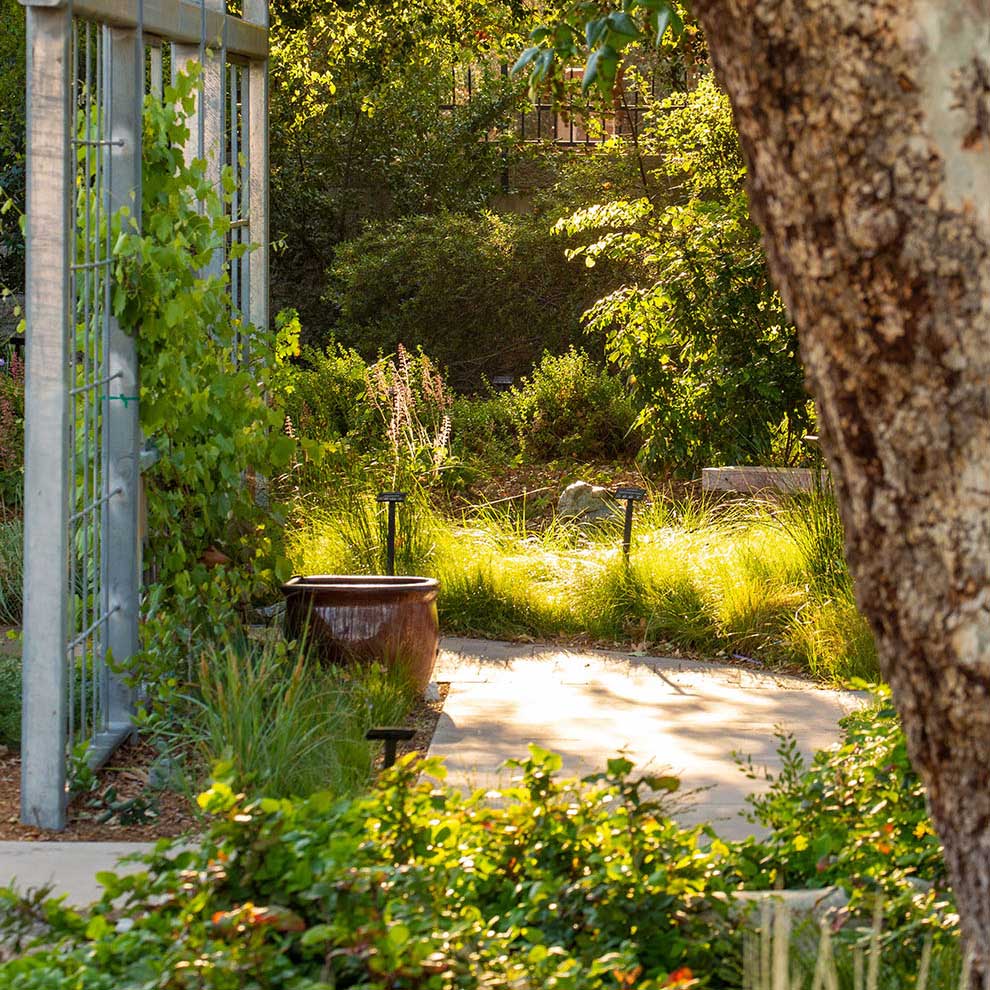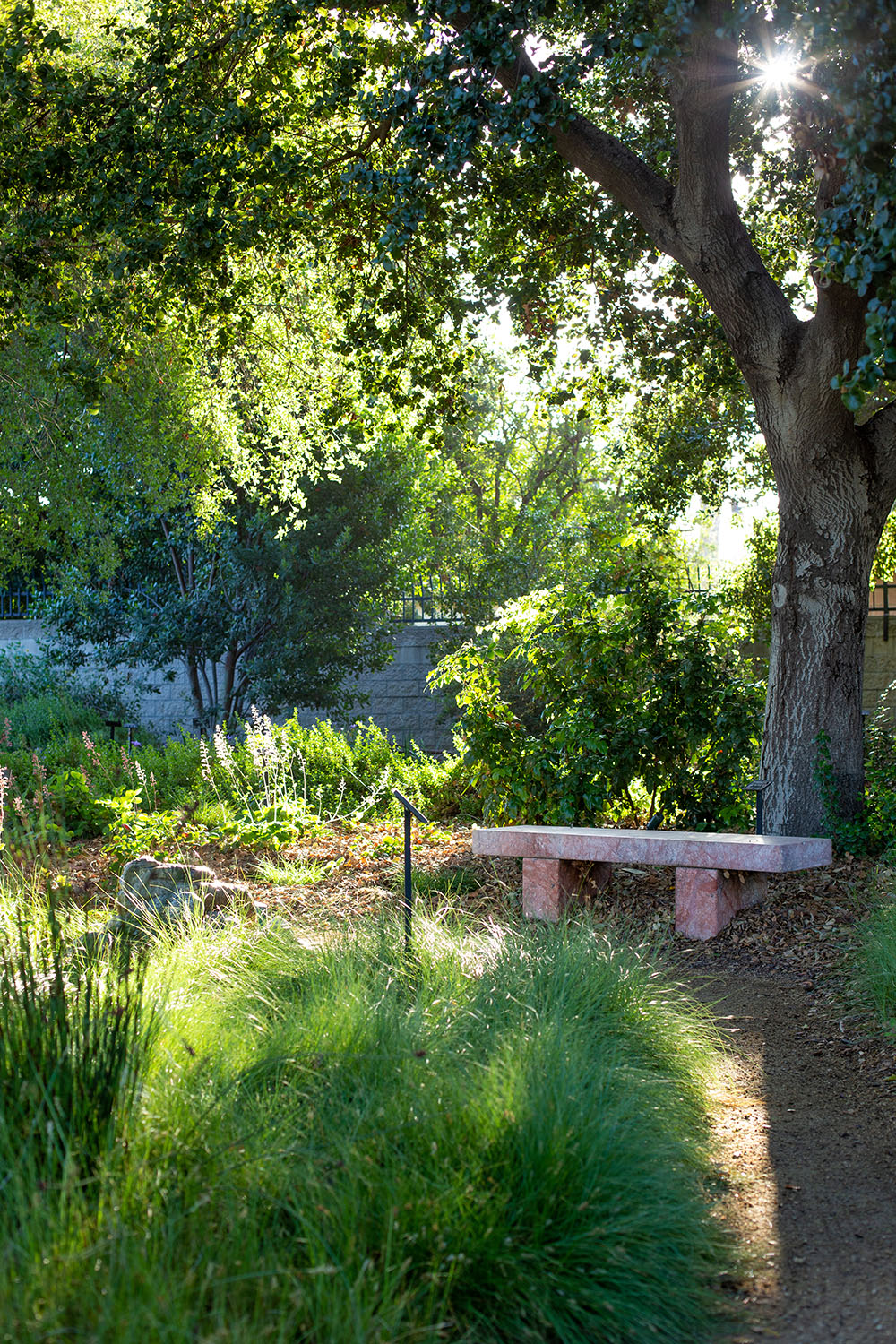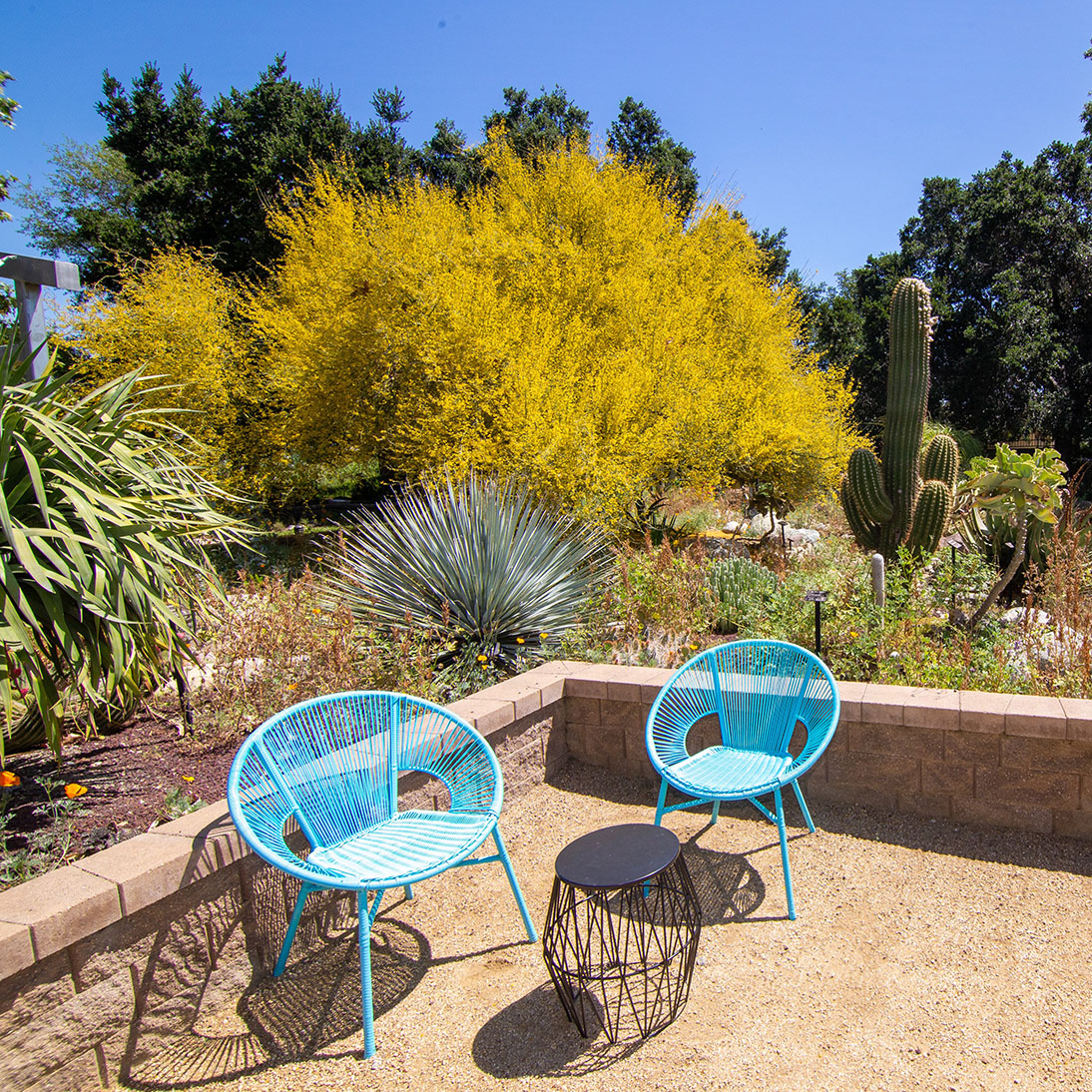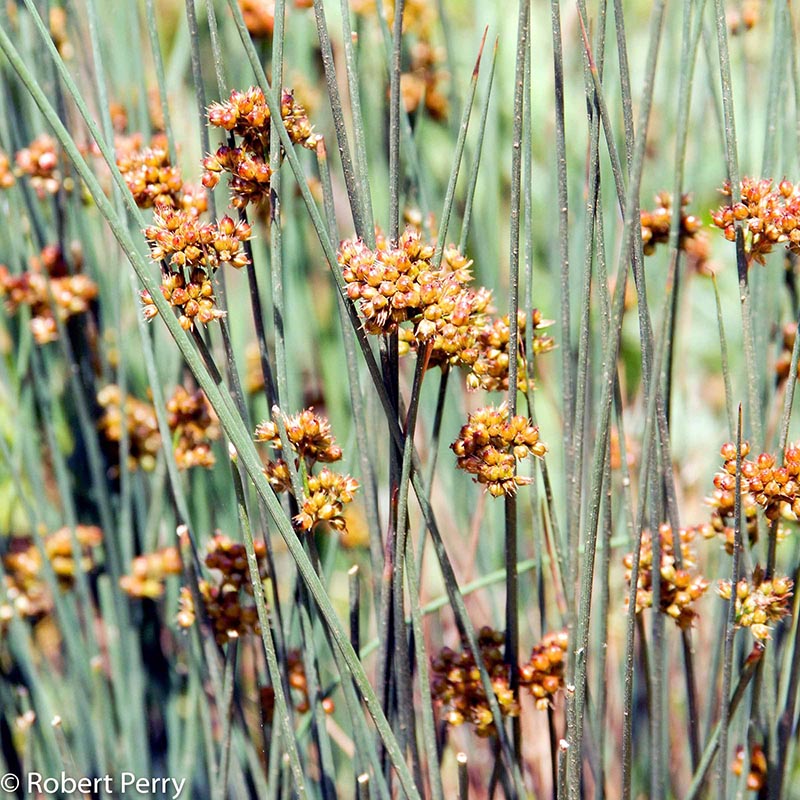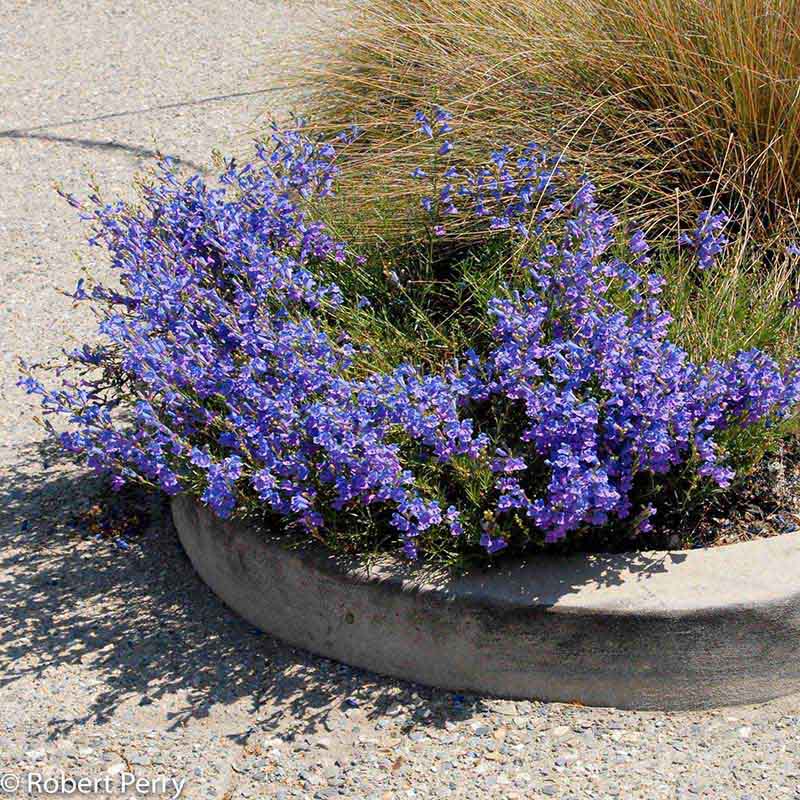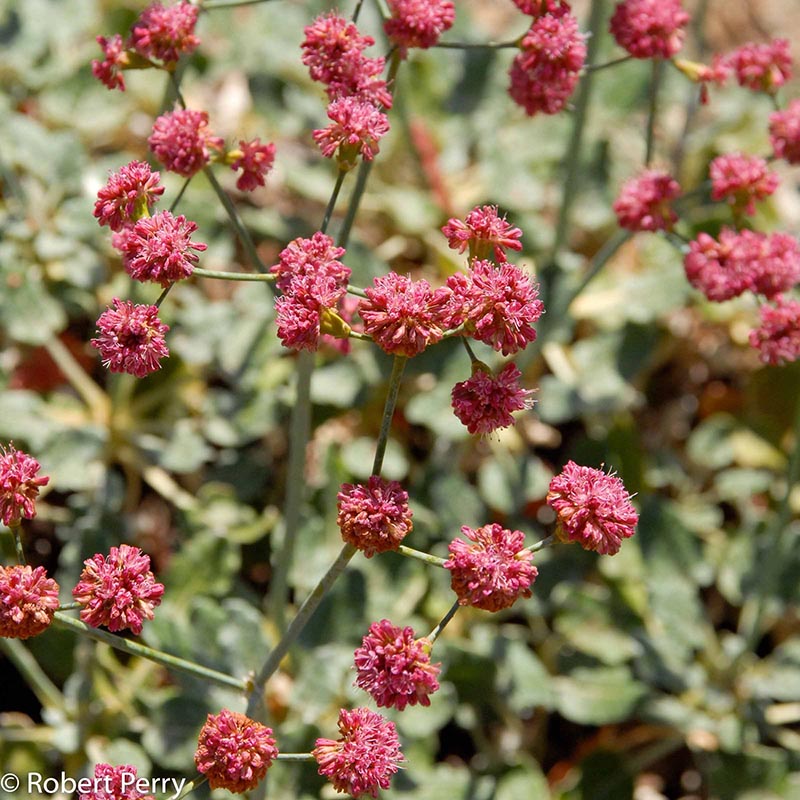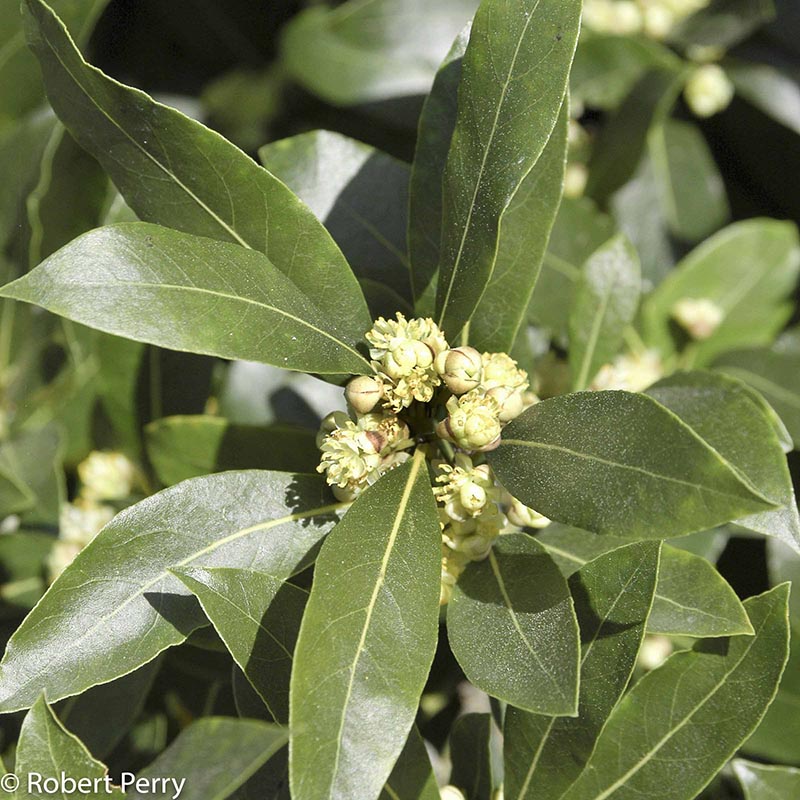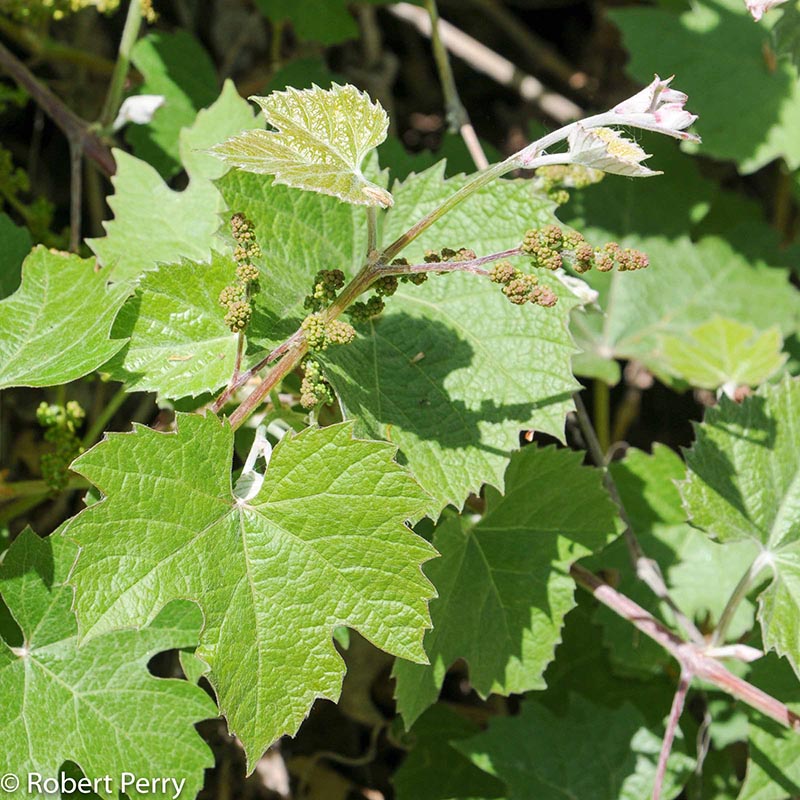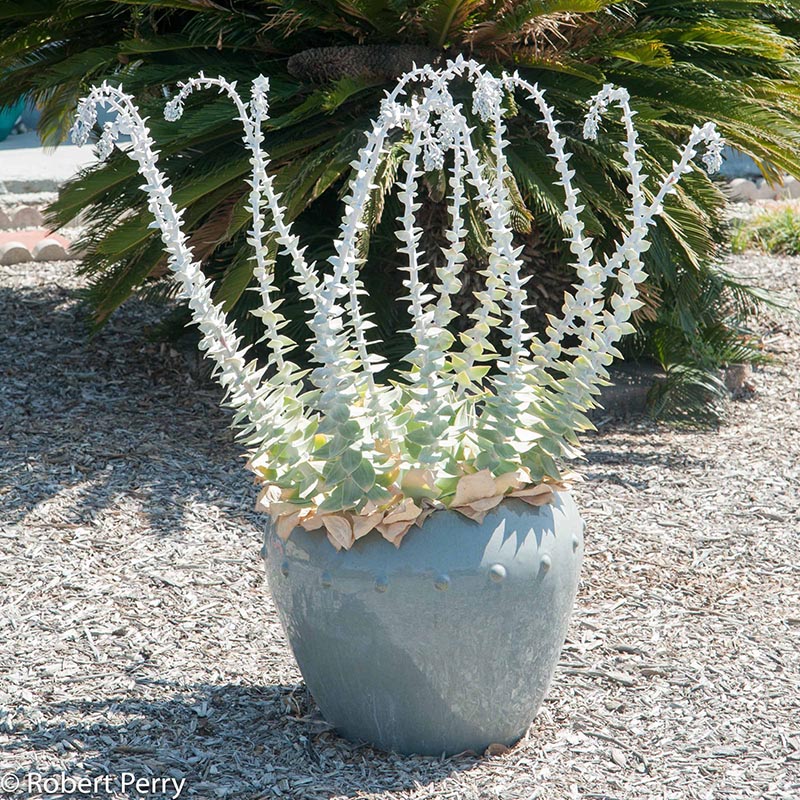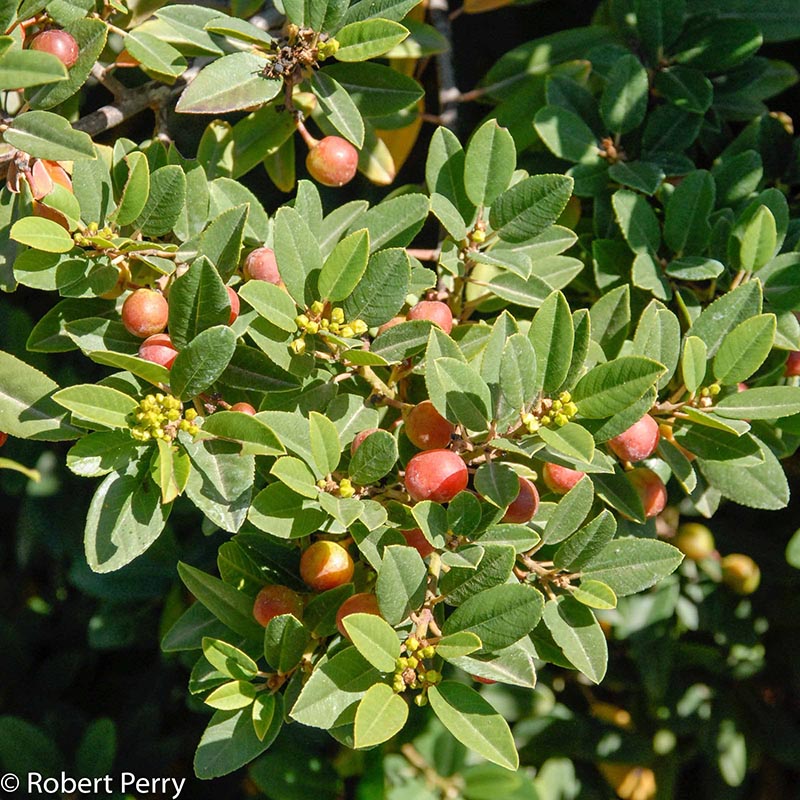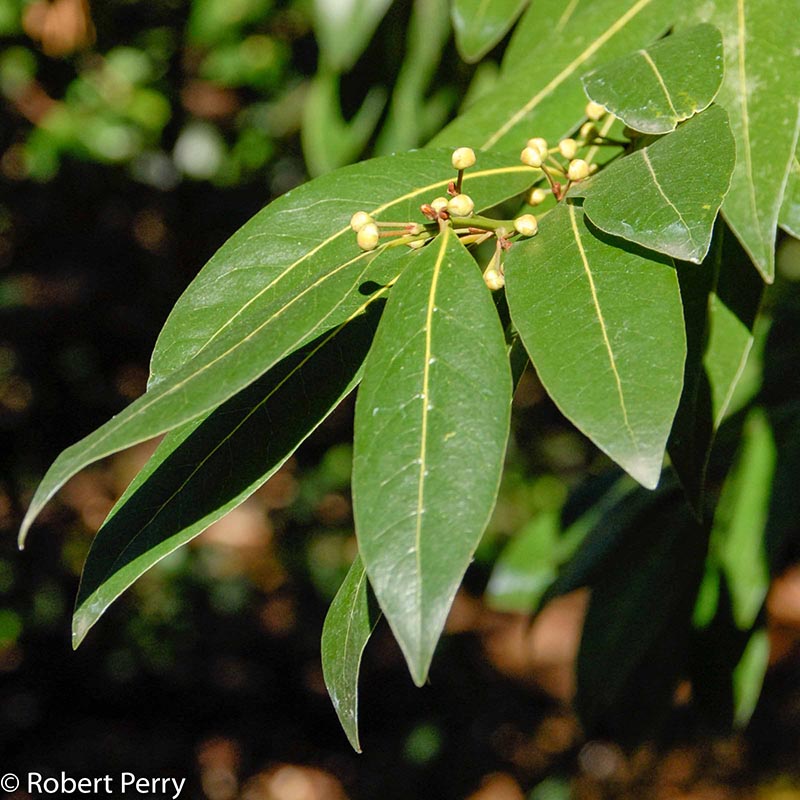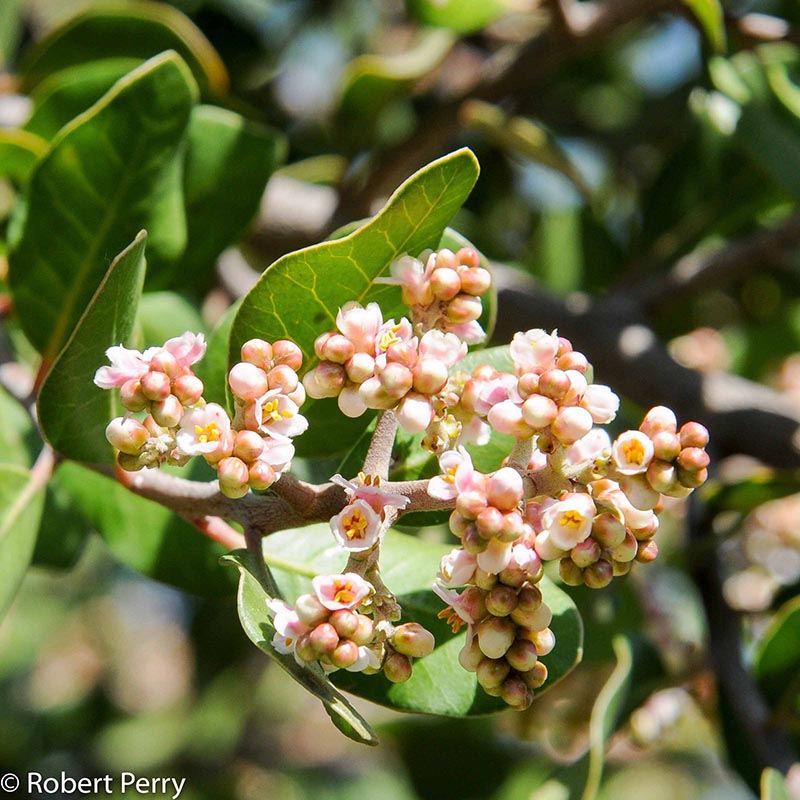Why Consider Container Gardening?
Sometimes planting in the ground is just not an option. Whether you have only paved spaces to work with or are a renter unable to change the landscape, many waterwise and native plants grow well in containers and can still provide benefits to local butterflies, birds, and pollinators.
California Native Plants in Pots
Potted native plants provide important nectar and pollen sources for hummingbirds, butterflies, and pollinators.
Native perennials and small shrubs tend to do the best in pots, though some smaller trees can be kept happy in a large pot, at least for a few years.
Some of our favorite native plants for pots include Eve Case coffeeberry, Jelly Bean monkeyflowers, Margarita BOP penstemon, De La Mina lilac verbena, and red buckwheat.
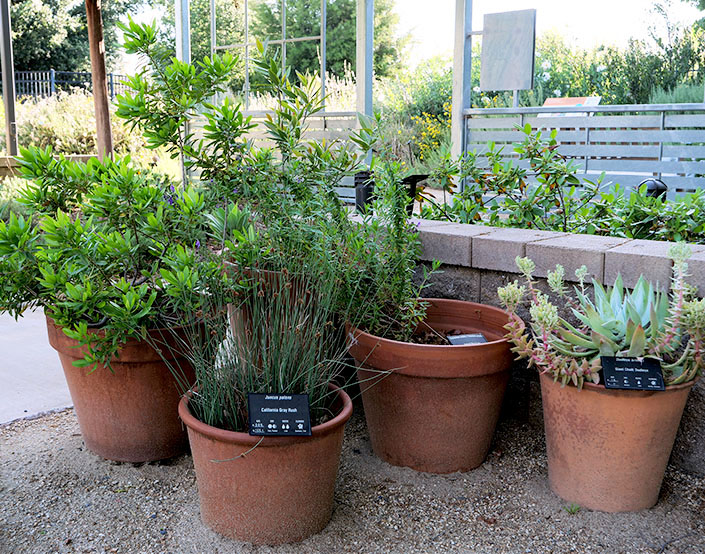
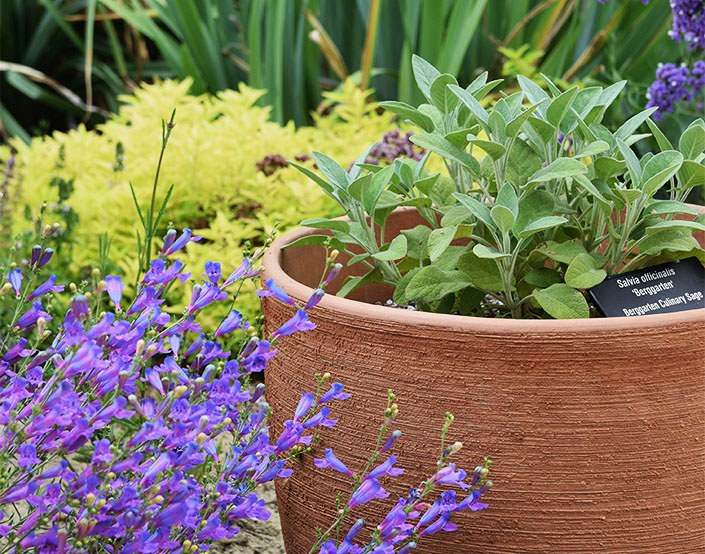
Mediterranean Herbs in Pots
Mediterranean herbs such as thyme, oregano, rosemary, and bay are easy to grow in pots and can supply an abundant harvest. We recommend large (18”–20” in diameter) plastic pots, with only one plant per pot. They can then grow in to fill the pot and last for years. Crowding too many plants together in one pot usually results in less-healthy, shorter-lived plants.
Succulents in Pots
Most succulents are easy to grow in pots. Some of our favorites include aloes and California native dudleya. Dudleya require partial or full shade, and are great under covered patio spaces.
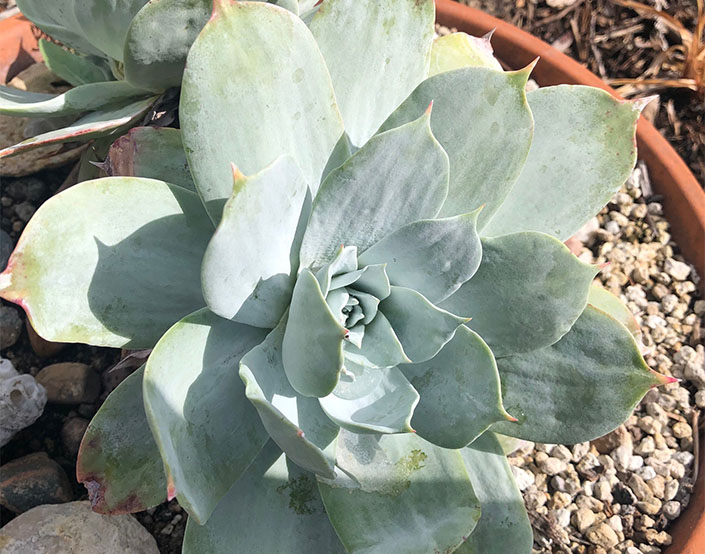
Top Tips
